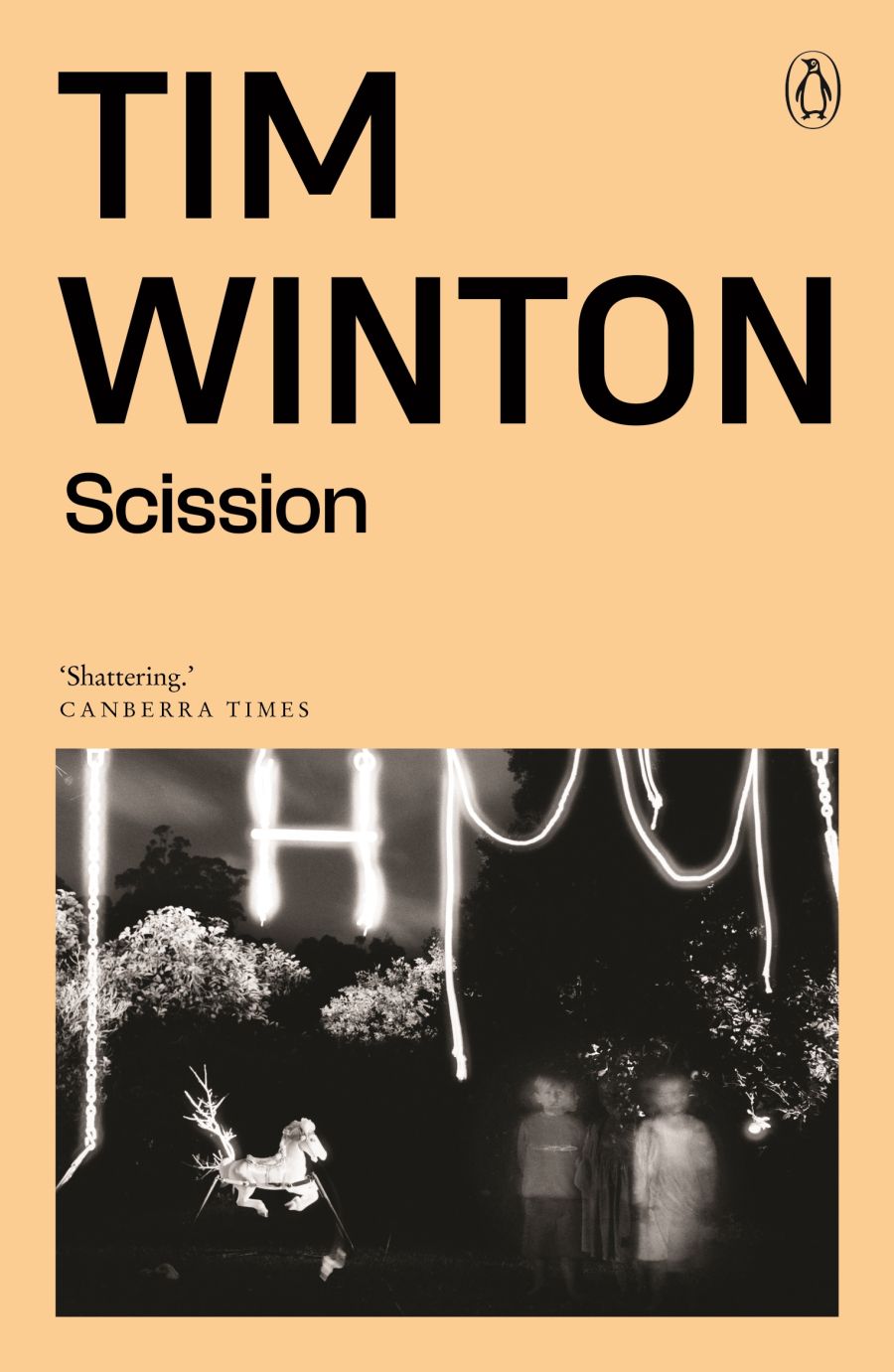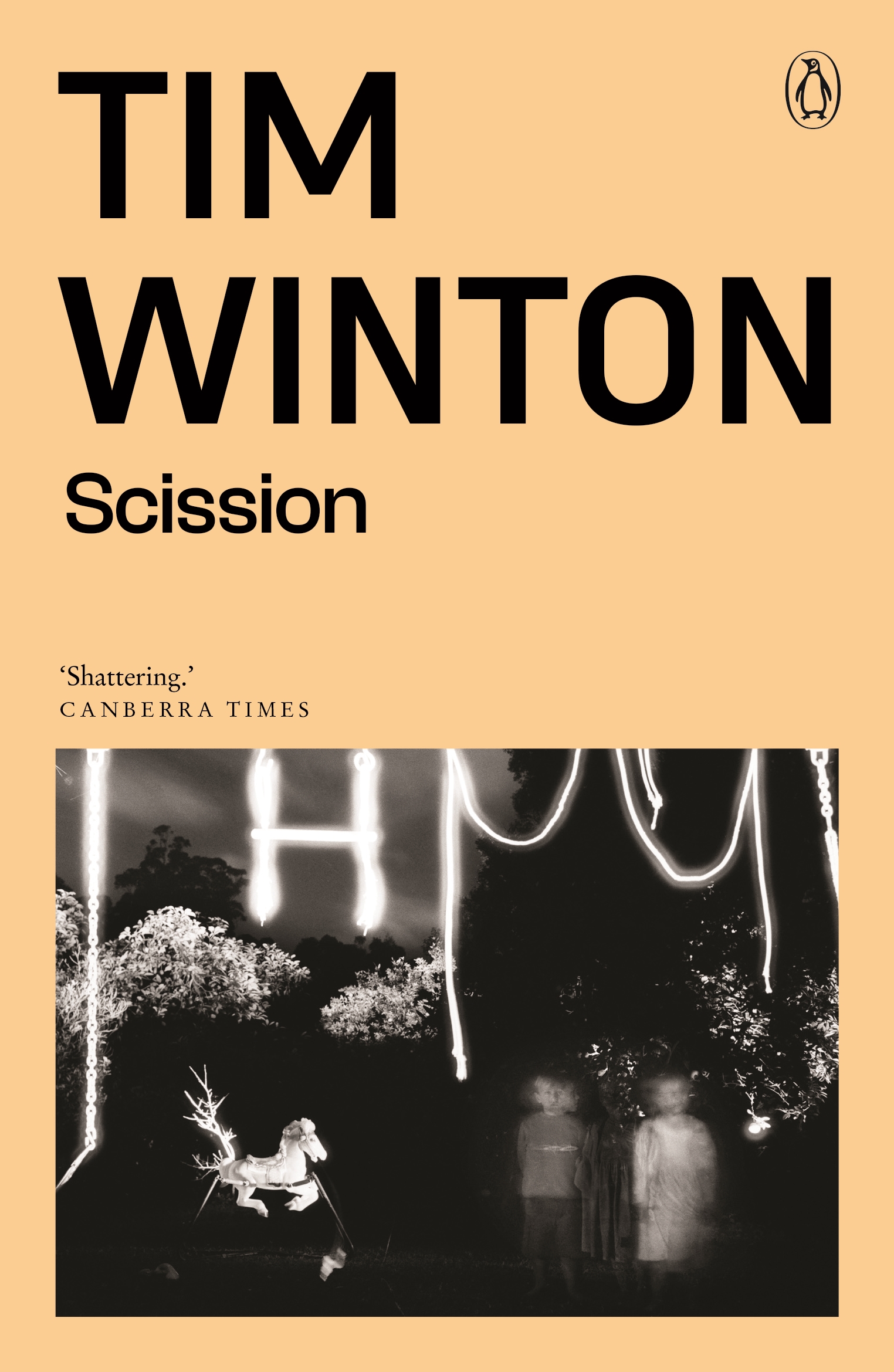
- Free Article: No
- Contents Category: Short Story
- Review Article: Yes
- Article Title: Death and disarray
- Online Only: No
- Custom Highlight Text:
Tim Winton writes on the dedication page of Scission, “this one is for Gonzo”, and his youth and astonishing rate of publication suggest that he may produce one for each of his friends and relatives. After bursting on the Australian literary world with An Open Swimmer Winton has published another novel, Shallows and this new collection of short stories.
- Book 1 Title: Scission
- Book 1 Biblio: Penguin, 156pp., $6.95pb
- Book 1 Cover Small (400 x 600):

- Book 1 Cover (800 x 1200):

- Book 2 Title: Midwinter Spring
- Book 2 Biblio: Fremantle Arts Centre Press, 142pp., $12.00pb
Almost every story in this book has a death of some sort on display (usually violent) – dead chicks, dead rats, dead cats, dead men, dead women. Why? To shock us and perturb us? Perhaps. To give a dramatic focus to the story? Much more likely. Winton could be suggesting that we live in a violent world where the strong feel safer when they beat the weak. Yet the overwhelming feeling at the end of this collection is that Winton’s characters are frightened of nature and, in particular, of the mysteries of sex and parenthood. Death is clearly akin to all the other physical forces. (Even that blue groper in the cave of ‘An Open Swimmer’ may be seen as a symbol of female sexual power as opposed to the freedom and clarity of the open swimmers).
It would not matter so much if Winton were not such an accomplished writer. But the insistence on bizarre violence ruins some otherwise careful and thoughtful stories. ‘Secrets’, for example, is a touching story about a little girl trying to cope with her mother’s wayward sex life. Kylie finds that a hen has laid some eggs in the yard of their new house and she consoles herself by waiting for the chicks to hatch. This would have been sufficient plot for Winton to give us some insight into the plight of an insecure child. But the denouement (dead chicks and chook) asserts that Kylie is not afraid of loneliness and lack of love but afraid of sex and the powers of motherhood. It happens in other stories, too; fatherhood, like motherhood, has its associations with fear and violence.
Winton is not simply a slick writer; he’s exceptionally good at creating symbols for the themes he likes – the sleeping bag “shroud” in ‘Wilderness’, the empty shoes on the beach in ‘A Measure of Eloquence’, the rainbow cake which gives the school cadet hope in ‘Lantern Stalk’. He also has a whimsical sense of humour which sometimes threatens to turn a story into a parody of itself. ‘Thomas Awkner Floats’ has a lot of fun with the pool at the front of the Victorian National Gallery – it’s a pity the character had to be ‘simple’ to interest Winton. Perhaps it is only a takes no risks with his own existence – a safe tenured job awaits the rediscovered self back in Australia.
Nevertheless, with the help of some local melodrama Webb manages to create an interesting study of personal change. His prose is consistently suggestive and thoughtful. And the occasionally perceptive glimpses through the window help to dispel the irritating concern with the mirror.


Comments powered by CComment